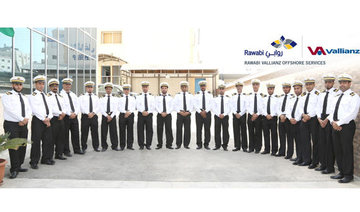RIYADH: The second Saudi Arabian Arabic language proficiency test for non-native speakers — Hamza — will be held on Sunday.
It will be administered by the King Salman Global Academy for Arabic Language, or KSGAAL, in collaboration with a number of Saudi universities in-person.
The inaugural Hamza test in September was intended as a step toward creating a standardized Arabic proficiency test.
Building on this, the second event is set to broaden its reach both locally and internationally, offering in-person and remote testing in collaboration with the Education and Training Evaluation Commission, or Qiyas.
Dr. Abdullah Al-Washmi, secretary-general of KSGAAL, spoke about how the Hamza test serves as a benchmark assessment accredited by the academy.
“The test evaluates four key language skills — listening comprehension, reading comprehension, writing and speaking — over 155 minutes, comprising 75 questions. Designed to meet the highest international standards, it aligns with the Common European Framework of Reference for Languages,” Al-Washmi said.
The test fulfilled the requirements of certain employers that mandate language proficiency assessments for job applicants, he said.
Through the “Hamza” test, KSGAAL aims to strengthen the academic prominence of the Arabic language regionally and globally.
By offering a precise and reliable assessment of linguistic competence, the test enables educational institutions to effectively evaluate Arabic learners and non-native Arabic instructors, ensuring accurate placement and skill development.
The test has now been administered in person to more than 2,000 candidates across Saudi Arabia and multiple other countries, encompassing more than 60 nationalities.
As part of its commitment to advancing the Arabic language, KSGAAL continues to refine and expand the test, leveraging educational and technological resources to enhance accessibility for non-native speakers both within the Kingdom and beyond.
Mansoor Almalki, director of Linguistic Testing at KSGAAL, told Arab News that collaborating with 19 Saudi universities to administer the Hamza test marked a significant step in expanding its adoption and solidifying its status as a trusted benchmark for Arabic language proficiency in academic institutions.
“This partnership ensures the test meets the evolving needs of educational institutions while reinforcing its role as a standardized assessment tool for non-native Arabic speakers,” he said.
“The integration between higher education institutions and KSGAAL, as the primary authority for Arabic language learning, teaching and assessment in the Kingdom, plays a crucial role in developing Arabic language curricula based on rigorous scientific standards.”
Almalki said that partnering with universities expanded the research database on Arabic as a second language assessment, paving the way for more effective educational strategies.
On international expansion, he revealed a strategic plan to strengthen partnerships with global universities and educational institutions, particularly in countries witnessing a growing interest in learning Arabic.
These efforts aimed to enhance the test’s international recognition and ensure its broader adoption worldwide.
“The standardized assessment model plays a crucial role in advancing research on Arabic language education. Test results provide analytical data that drive the development of more effective teaching methods,” Almalki said.
He said that the diverse nationalities of test-takers served as a strong indicator of the global success of Hamza as an international test.
“Such diversity underscores the trust that learners and academic institutions place in KSGAAL, as well as the test’s reliability as a precise standardized measure of linguistic competence,” Almalki said.































